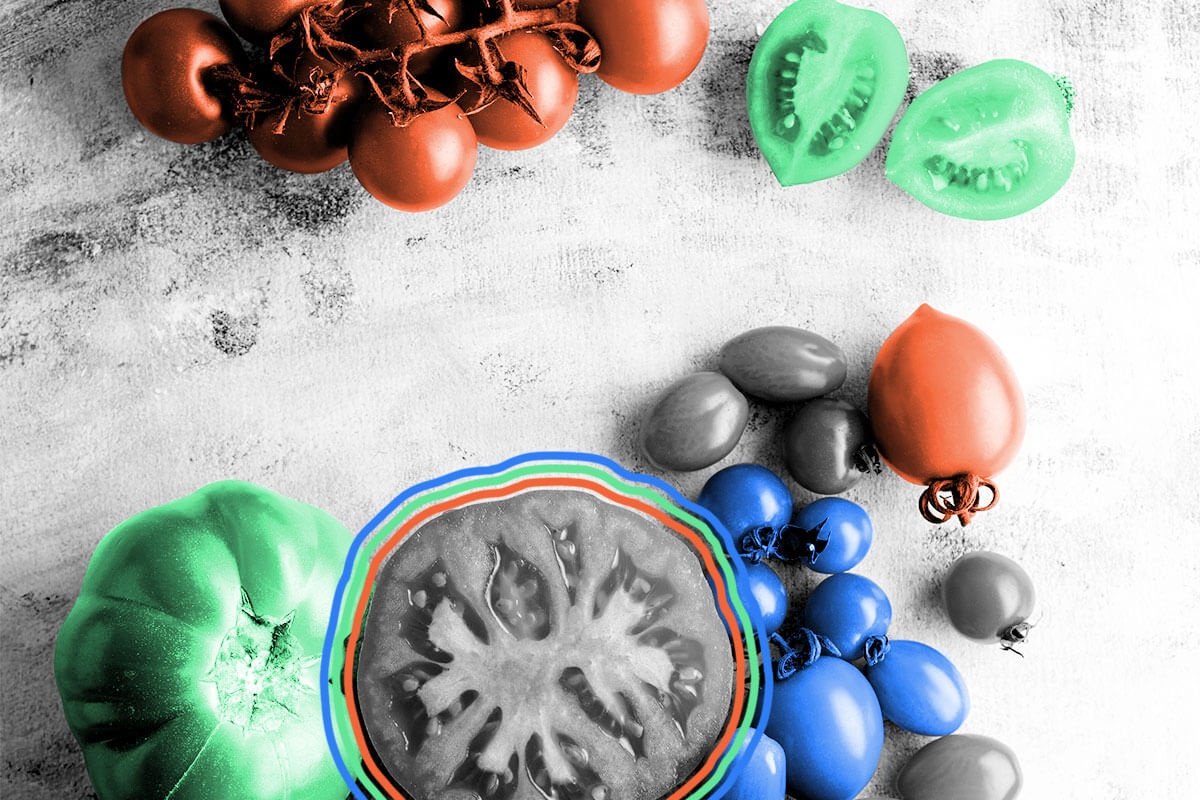
Tomatoes have more genes than humans.
We humans have somewhere between 20,000 and 25,000 genes — a sizable number to be sure, but still considerably fewer than the 31,760 in everyone’s favorite nightshade. Though scientists still aren’t sure why tomatoes have such a complex genome, an emerging theory relates to the extinction of the dinosaurs. Around the time those giant creatures disappeared from Earth, the nightshade family (solanaceae) tripled its number of genes. Eventually the superfluous copies of genes that served no biological purpose disappeared, but that still left a lot of functional ones; some believe the extra DNA helped tomatoes survive during an especially perilous time on the planet, when it was likely still recovering from the aftereffects of a devastating asteroid.
Humans, meanwhile, have two copies of every gene: one from their mother and one from their father. The number of genes doesn’t necessarily imply biological sophistication, but rather how an organism “manages its cells’ affairs” — simply put, humans make more efficient use of the genes they have. The Human Genome Project, which launched in 1990 and took 13 years to complete, successfully mapped and sequenced every single gene found in Homo sapiens. With thousands of scientists involved, it remains the largest international collaboration ever undertaken in the field of biology — until the Tomato Genome Project is launched, that is.
The humble tomato used to have a far more sinister moniker: “poison apple.” In the 18th century, many believed that European aristocrats were falling ill and even dying after eating tomatoes — a misconception stemming from the use of pewter plates, which contained high lead content. Tomatoes, which are highly acidic, would leach that lead and then poison the unlucky eater. The fear of tomatoes was just as prevalent across the pond, where some American farmers believed that the green tomato worm was “poisonous as a rattlesnake.” An entomologist eventually set the record straight, and by the late 1800s more people began to appreciate tomatoes for the nutritious treat they are.

